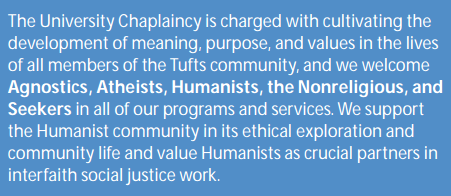Hemant Mehta's Blog, page 1935
September 5, 2014
The 12 Best Things About Hell
The video below, part of The Atheist Voice series, discusses the 12 best things about Hell:
A rough transcript of the video can be found on the YouTube page in the “About” section.
We’d love to hear your thoughts on the project — more videos will be posted soon — and we’d also appreciate your suggestions as to which questions we ought to tackle next!
And if you like what you’re seeing, please consider supporting this site on Patreon.
Saudi Court Upholds Ruling Against Atheist Blogger. He Faces 10 Years in Jail and 1,000 Lashes for “Insulting Islam”
Last year, 30-year-old Saudi Arabian blogger Raif Badawi was punished for starting a progressive website that called for, among other things, religious tolerance and women’s rights. That was insulting to Islam, said his critics. He was sentenced at the time to seven years in prison and 600 lashes.
His sentence was overturned… but that respite was brief. In May, Badawi was given an even harsher punishment:
… the Criminal Court has sentenced Badawi to ten years in prison, 1,000 lashes, and a one million riyal fine (USD $266,631).
His lawyers appealed the ruling, but we learned this week that the decision was upheld. Great justice system they have in Saudi Arabia…
Michael De Dora of the Center For Inquiry explains what will happen now:
This means Badawi’s sentence is final, and that Saudi officials could begin to impose lashes on Badawi within several weeks. According to the final decision, Badawi will receive 50 lashes per session, with a break of no less than a week between sessions. The lashings will be carried out in public after Friday prayers in front of al-Jafali mosque in Jeddah.
Amnesty International offers contact information for Saudi leaders you can write to in order to voice your dissent. It’ll likely fall on deaf ears — I mean, how serious can you take a “Human Rights Commission” in a country that punishes atheists for expressing their opinions? — but there doesn’t seem to be any other way to help Badawi right now.
Still, we can share his story. If this doesn’t get you worked up about the discrimination faced by atheists and religious minorities in theocracies like Saudi Arabia, nothing will.
(Portions of this article were posted earlier)
For the Third Time, a University-Run Hotel Removes Bibles from Rooms
This shouldn’t be complicated. Public universities shouldn’t be in the business of promoting one religion over another and that also applies to their hotel rooms.
Last year, the Freedom From Religion Foundation requested that Bibles be removed from the University of Wisconsin-Madison’s campus inn, the Lowell Center.
Then, a few months later, they persuaded Iowa State University-Ames to do the same thing at Memorial Union.
Now, it’s Penn State’s turn:
FFRF received word Sept. 3 from the general counsel at Pennsylvania State University that bibles have been removed from the Nittany Lion Inn and the Penn Stater Conference Center Hotel in State College. Both are run by the university.
…
“No nonreligious hotel guests should have to pay high prices to be proselytized in the privacy of their own bedrooms,” said FFRF Co-President Annie Laurie Gaylor. “The bible calls for killing nonbelievers, apostates, gays, ‘stubborn sons,’ and women who are not virgins on their wedding nights. What is obnoxious in a private hotel, however, becomes inappropriate and unconstitutional in state-run lodgings.”
Gaylor added, “So we’re grateful to Penn State for making this decision to respect all its hotel guests and stay above the religious fray.”
The response from someone will inevitably be that no one’s proselytizing to guests and they can ignore the Bible if they want to, but that’s missing the point. The principle remains that public schools cannot promote religion; that includes distributing one religion’s holy book but not anybody else’s.
If other universities are doing the same thing, they could save everyone time and trouble by just removing the books from their hotel rooms now. I doubt Christians will even notice.
(Image via Shutterstock)
The Differences Between Christianity and Humanism in One Image
September 4, 2014
Secular Group Showcase: Tri-State Freethinkers
We asked you to tell us about your local secular group in an attempt to encourage the start-up and growth of “good without god” communities. We’ve received a lot of responses already (Thanks!) and here’s a glimpse at our next group: The Tri-State Freethinkers in Ohio, Kentucky, and Indiana:
They spoke about the best reaction they ever received:
When we marched in the Pride Parade they put us in the middle of all the churches. We were a breath of fresh air and got a lot of cheers when we walked by.
You can read more of our interview here!
…
Want to be featured in this series? If you can fill out most of the questions below, your group is probably a good candidate to be showcased on our page. We hope to hear from you! E-mail submissions to SecularGroups@gmail.com!
Group name:
Location:
Mission Statement:
Links to group’s Facebook. website, Twitter, etc.:
When was your group established?
What does your group do for fun to connect with each other?
What community/volunteer activities does your group participate in, if any?
What political/social activism does your group do, if any?
Does your group have a favorite charity to fundraise for or promote?
Do you have any stories to share about your city having a positive reaction to your group?
What are some challenges your group has faced?
What advice would you like to share with other groups struggling to grow or are just starting up?
**Please attach some photos of your group as a whole, in action, and having fun**
The Problem with Tradition
Earlier today, the U.S. 7th Circuit Court of Appeals struck down gay marriage bans in Wisconsin and Indiana. The reason really hinged on the idea of tradition:
A pretty safe tradition
… There are, the court noted, good and bad traditions.
“Bad traditions that are historical realities such as cannibalism, foot-binding, and suttee, and traditions that from a public-policy standpoint are neither good nor bad — such as trick-or-treating on Halloween,” it said. “Tradition per se therefore cannot be a lawful ground for discrimination — regardless of the age of the tradition.”
Limiting marriage to one man and one woman? The judges agreed that was a bad tradition and it’s time had passed.
I’m going to pivot on that idea for a moment since most of the church/state separation lawsuits that atheists ever lose revolve around governments saying their promotion of religion is tradition and our side saying it doesn’t matter, it’s still illegal, and it needs to change.
“In God We Trust” on our currency? Despite efforts to remove the phrase, judges said it could stay on the money because it was “ceremonial” and all but secular at this point.
Governors holding a Day of Prayer celebration? If no one stops you quickly, it becomes tradition, as Arizona’s Jan Brewer said in 2013:
“I applaud the Arizona Superior Court for rejecting this lawsuit, which was little more than another sad attempt to stifle an American tradition.
“Uniting in prayer is a custom as old as our nation itself. For centuries, millions of Americans of every race, creed and color have come together in voluntary prayer to seek strength and wisdom. This is an American right and tradition, and one that I’ve proudly marked each year I’ve been Governor by proclaiming an Arizona Day of Prayer.
Painting of Jesus hanging at a public school? Even that is justified by the idea of tradition, despite being an obvious constitutional violation.
Every time, you hear a refrain from Christians that sounds like this: You didn’t complain about it for decades, but *now* it’s a problem?
They forget that there’s a heavy price to pay for going against rituals that many people have become accustomed to. It’s also possible that no one noticed the violation before — but that doesn’t make it okay.
Government promotion of religion, whether it’s explicit like a prayer banner in a public school or implicit like gay marriage bans, must be fought even if “we’ve always done it that way.” Tradition is never a good enough justification to keep a bad idea going.
What’s more is that when a tradition stops, we quickly get accustomed to whatever takes its place. Kids growing up today will likely always see marriage as a commitment between two people, regardless of gender. It’s not like they’ll eventually be bawling about the good old days when gays and lesbians were being discrimination against.
(Thanks to Insightfill for the link)
Tufts Just Hired the First University-Funded Humanist Leader in the Nation
The six universities in the U.S. that have Humanist Chaplains all have something in common (besides being pretty damn good schools): Those positions are all paid for by the respective Humanist communities. The schools themselves don’t offer any financial help.
That’s about to change now that Tufts University has ponied up the cash to sponsor the first Humanist staff position on campus — the first of its kind anywhere in the country. Walker Bristol, a former leader of the campus’ freethought group, will serve as “Humanist in Residence.” He will assist University Chaplain Greg McGonigle by offering “religious and philosophical leadership for the University… by providing primary leadership, organization, advising, and support for the Humanist community.”
Keep in mind this is a school that already lends a lot of support to non-religious students on campus:
But it’s about time this position was created, considering how long some students have been clamoring for it.
Chris Stedman spoke with McGonigle about how the position came to be:
When I arrived at Tufts last summer, our President Anthony Monaco asked me to look into the matter of chaplaincy support for Humanist students. Tufts has had a large population of Humanists, atheists, agnostics, nonreligious, and spiritual but not religious students for some time — and these students, as well as alumni, had been requesting that Tufts consider adding support for Humanists in the University Chaplaincy. At the same time, the Tufts Freethought Society — the primary Humanist community on campus — has become increasingly strong and vibrant, very engaged in interfaith work, and very interested in partnering with the University Chaplaincy on programming in recent years.
The student newspaper also lent its support:
The university administration and chaplaincy should be commended for this important step. Tufts prides itself in student-body diversity, and the induction of a Humanist in Residence is demonstrative of this commitment to greater inclusion. Tufts’ funding will now support the well-being and intellectual development of a larger population, without requiring students to identify with a particular religious group.
So it’s not quite a chaplaincy, but it’s a staff position nevertheless. One of the common problems college atheist groups face is that they may have a great leader, but once that person graduates, the group suffers. Having someone on campus who’s there for the long haul — as most established religious groups do — makes a huge difference in sustaining that community.
Best of luck to Bristol and huge congratulations to Tufts for taking this chance.
You Have a Choice: Sign a Contract That Says “So Help Me God” or Get Out of the Air Force
When a service member stationed at Creech Air Force Base in Indian Springs, Nevada decided to reenlist last month, his contract included the words “So help me God.”
He decided to cross the phrase out, which should be perfectly acceptable, but the Air Force said he had to include it or get out. Now, the American Humanist Association’s Appignani Humanist Legal Center is stepping in:
… he was told he must sign the religious oath potion of the enlistment form without adjustment. Requiring [redacted] to take an oath containing this religious affirmation violates his clearly established constitutional rights under the First Amendment. This letter demands that you immediately allow [redacted] to reenlist using a secular affirmation and that the Air Force accept his written enlistment form in a way that reflects his secular affirmation…
…
If [redacted] is not administered a secular oath, the commanding officers may be sued in federal court for injunctive and declaratory relief. In addition, because the law in this area is well establishes, those commanders may be sued in their individual capacities and be personally liable for damages along with attorneys’ fees.
It’s just bananas that an officer would flip out over those four words. What’s more is that the service member displayed a lot of integrity by not signing the form as is. If he did, he’d be lying to himself and the Air Force. Instead, he took the honest route by saying those words didn’t apply to him… and he got punished for it.
There should be a quick resolution on this, but there’s no reason it should have taken an attorney’s letter to make it happen.
Outlaw TV Belly Dancing Show, Demands Egypt’s Top Religious Council
It took them 700 years to decide, but the die is cast. Praise Allah:
Egypt’s top religious body is demanding that a new belly-dancing TV show be suspended for “corrupting morals” and serving “extremists” who could use it as a pretext to depict Egyptian society as anti-Islamic.
A statement Wednesday by Dar al-Ifta, the top body that advises Muslims on religious and life issues, said the “Dancer” show “serves extremists who take such matters as a justification to promote the idea that society is fighting religion.”
The show aired only once on the Cairo and People satellite television network.
A famous belly dancer known as Dina was among a three-member panel to choose the most-talented dancers, many of whom were not Egyptians.
While famed in Middle Eastern countries for centuries, conservatives in Egypt believe belly dancing is immoral.
The Dar-al-Ifta and the Egyptian government are bestest buddies, says Wikipedia:
The Egyptian government has placed much interest in Dar al-Ifta since its founding up through this very day. It has built them permanent housing appropriate to its importance among Muslims and provided them with a large computing center to assist in researching and responding to requests with ease and accuracy.
(Image via Shutterstock)
P.S. Correction: The Dar al-Ifta was founded in 1313 AH, which is 1895 on the Gregorian calendar. I apologize for the error.
Outlaw Belly Dancing, Demands Egypt’s 700-Year-Old Top Religious Council
It took them 700 years to decide, but the die is cast. Praise Allah:
Egypt’s top religious body is demanding that a new belly-dancing TV show be suspended for “corrupting morals” and serving “extremists” who could use it as a pretext to depict Egyptian society as anti-Islamic.
A statement Wednesday by Dar al-Ifta, the top body that advises Muslims on religious and life issues, said the “Dancer” show “serves extremists who take such matters as a justification to promote the idea that society is fighting religion.”
The show aired only once on the Cairo and People satellite television network.
A famous belly dancer known as Dina was among a three-member panel to choose the most-talented dancers, many of whom were not Egyptians.
While famed in Middle Eastern countries for centuries, conservatives in Egypt believe belly dancing is immoral.
The Dar-al-Ifta and the Egyptian government are bestest buddies, says Wikipedia:
The Egyptian government has placed much interest in Dar al-Ifta since its founding up through this very day. It has built them permanent housing appropriate to its importance among Muslims and provided them with a large computing center to assist in researching and responding to requests with ease and accuracy.
(Image via Shutterstock)
Hemant Mehta's Blog
- Hemant Mehta's profile
- 39 followers












